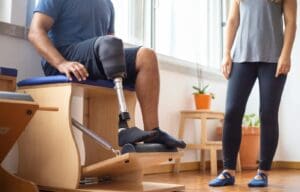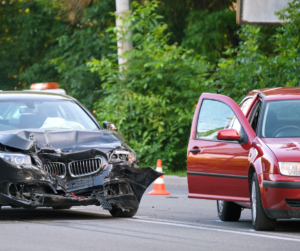What is Negligence?
Negligence is the failure to use a reasonable degree of care given the circumstances. The four elements of negligence are a duty owed to a plaintiff, a breach of that duty by the defendant, proximate cause, and injury or damage suffered by the plaintiff. It is essentially carelessness.
According to Black’s Law Dictionary, negligence is defined as “the failure to exercise the standard of care that a reasonably prudent person would have exercised in a similar situation.” As such, negligence refers to a failure to exercise the level of care that a reasonably prudent person would exercise in similar circumstances. It forms the basis of many personal injury claims and lawsuits, where a plaintiff alleges that their injuries or damages were caused by the negligent actions or omissions of another party.
Key elements of negligence include:
- Duty of care: The legal obligation of an individual or entity to exercise reasonable care to avoid causing harm to others. This duty may arise from professional relationships, ownership of property, or other circumstances.
- Breach of duty: A failure to fulfill the duty of care by acting or failing to act in a way that deviates from what a reasonably prudent person would do.
- Causation: The link between the defendant’s breach of duty and the plaintiff’s injuries or damages. It must be shown that the defendant’s actions or omissions directly caused harm to the plaintiff.
- Damages: Actual harm or losses suffered by the plaintiff as a result of the defendant’s negligent conduct, which may include physical injuries, emotional distress, property damage, or financial losses.
Legal principles related to negligence aim to compensate injured parties for their losses and encourage individuals and businesses to act responsibly to prevent foreseeable harm. For example, if your landlord doesn’t fix a rickety set of steps you let him to, and you fall through the steps a week later, the landlord is negligent in his duty of care. Understanding the elements of negligence is essential in personal injury cases and other legal disputes where liability is based on the failure to exercise reasonable care under specific circumstance
More information about Negligence
Scaffolding Accident Lawyer
Scaffolding accidents are among the most common causes of construction site injuries. From falls to equipment malfunctions, these accidents can result in long-term physical, mental, and emotional challenges. What makes these cases particularly complex is the number of potential parties responsible, from the scaffolding manufacturer to the employer, or even a subcontractor.
After an accident, knowing your legal rights helps you get fair payment for your medical bills, missed work, and other hardships. Our scaffolding accident lawyers have extensive experience with workplace injury cases and insurance claims. We’ll guide you step-by-step through filing your personal injury claim and work to get you the maximum compensation owed to you.
Scaffolding Accident Rights and Claims
Falls, equipment failures, and scaffold collapses often cause severe injuries at construction sites. While workers’ compensation covers your medical care and missed wages, it doesn’t account for all your hardships after an injury. […]
Read MoreMore information about Negligence
What to Do While on Workers’ Compensation in Pennsylvania
Receiving workers’ comp benefits in Pennsylvania limits an injured worker’s activities. If your workers’ comp claim is in progress or has been approved, you may have questions about what you can and can’t do while receiving entitlements. Your claim benefits can be reduced or revoked if the insurance company or your employer can show that you don’t require them.
Workers’ compensation rules can feel overwhelming. Medical treatment, returning to work, and even personal activities can impact your recovery and entitlements. Physical recovery should always be your first priority. When you are focused on that and following your doctor’s orders, your workers’ compensation claim process should proceed more smoothly.
Unfortunately, your employer or insurance company paying for your entitlements will watch for any opportunity to revoke or reduce your compensation payments. For this reason, having an experienced Pennsylvania workers’ […]
Read MoreMore information about Negligence
Construction Accident Lawyer
Construction accidents can devastate workers and their families, leading to severe injuries, overwhelming medical bills, and lost wages. At Munley Law, our construction accident lawyers have spent the last 65 years fighting for injured workers, securing multi-million dollar verdicts and settlements while helping our clients navigate workers’ compensation claims and third-party lawsuits.
Construction accidents often involve multiple responsible parties—contractors, subcontractors, equipment manufacturers, and property owners, to name a few. Our experienced personal injury attorneys know how to prove who is at fault for your injuries so you can receive full compensation for your accident.
Don’t let a construction accident derail your future – contact Munley Law today for a free case evaluation.
Common Construction Accident Claims Munley Law Handles

More information about Negligence
Drunk Driving Accident Lawyer
A drunk driving accident lawyer at Munley Law brings the experience, skill, and resources that victims need when facing the aftermath of an impaired driving crash. We have more than 250 years of combined experience and have earned a reputation as an award-winning team that understands how to build strong cases against drunk drivers and the insurance companies that defend them.
Munley Law is consistently listed among the Best Law Firms in America, and all five of our partners have been named to the Lawdragon 500 Leading Plaintiff Consumer Lawyers in the United States. Over the past seven decades, we have secured more than $1 billion in personal injury settlements and verdicts for clients nationwide. We front all case costs and work with expert witnesses in accident reconstruction, toxicology, medical care, and financial loss to prove the full impact of your injuries. Our car accident attorneys also build litigation strategies that counter the delay and denial tactics insurance carriers often use in drunk driving cases. […]
Read MoreMore information about Negligence
How Long Does a Medical Malpractice Lawsuit Take in Pennsylvania?
How long does a medical malpractice claim take in Pennsylvania? It can take anywhere between 1-5 years to resolve, depending on the complexity of the case. After suffering serious injuries, this timeline can seem like an eternity. However, an experienced attorney at Munley Law will make you and your family their top priority.
At Munley, we equip our clients with as much information about their claim as possible. After all, knowledge equals power. We are going to do a deep dive into the details of a claim, which will help explain the process you’re going through.
If you have more questions and want to speak with an experienced medical malpractice lawyer who can guide you through your claim, call the Munley law firm. Our attorneys have been successfully litigating medical malpractice claims since 1959. We deeply understand the trauma and stress you and your family are facing. […]
Read MoreMore information about Negligence
Amputation Lawyer
Amputation injuries, often caused by traumatic accidents, medical malpractice, or severe medical conditions, can have a profound impact on a person’s life forever. More than 5.6 million people are living with the loss of a limb in the U.S. This reality brings about considerable physical, emotional, and financial hurdles, requiring extensive medical treatment, rehabilitation, and prosthetic support — and making the legal journey quite intimidating.
If someone else’s negligence caused your amputation, it’s essential to consult with an experienced amputation lawyer who can help secure the compensation you deserve. A knowledgeable attorney will guide you through the legal process, protect your rights, and fight for the financial support you need for your healing and future.
Understanding Amputation Injuries
Amputation injuries lead to the loss of a limb or part of 
More information about Negligence
What Are the DOT Requirements for Reflective Tape on a Truck?
Have you noticed red and white reflective tape on the trailers of large trucks? Commercial trailers must install reflective tape that conforms to Department of Transportation (DOT) regulations. Trucking companies can guard against rear-end collisions and other accidents by doing so.
Be aware that these requirements may be relevant to you even if you’re not a trucker or otherwise involved in the trucking industry. For example, perhaps you were injured in a truck accident. If the truck didn’t have the proper reflective tape installed, you could potentially highlight this fact when pursuing compensation for medical bills, lost wages, and other such losses. Discuss your case with our truck accident team at Munley Law for more information.
DOT Reflective Tape Regulations

More information about Negligence
Understanding the Gross Vehicle Weight Rating of a Truck
Understanding the Gross Vehicle Weight Rating (GVWR) of a truck is critical to ensuring that the vehicle operates safely and legally. Vehicle manufacturers determine the GVWR, and this number reflects the maximum weight that the vehicle can safely handle. When a truck is overloaded, and the weight exceeds the GVWR, this puts the truck driver and other drivers on the road in danger and can lead to accidents.
What Is Gross Vehicle Weight Rating (GVWR)?
The Gross Vehicle Weight Rating (GVWR) is set by the vehicle’s manufacturer and indicates the maximum allowable weight capacity for the vehicle. The GVWR considers the weight of the vehicle, its passengers, cargo, and the fuel tank. Although sometimes used interchangeably, the GVWR differs from other weight measurements, such as the Gross Combined Weight Rating (GCWR), which is the maximum total combined weight of a truck and its trailer. […]
Read MoreMore information about Negligence
Man Hit By Plow While Leaving Doctor’s Appointment in Hempfield Twp., PA
A man had been hit by a plow truck after leaving a doctor’s appointment in Hempfield Township on January 6. According to news reports, a wintry mix had fallen throughout the area in the morning. Around 8 a.m., Pennsylvania State Police were called to the parking lot of an orthopedic office on Clark Ellis Road for reports of a man being hit by a plow truck.
According to police, the 74-year-old man was leaving the office when the backside of the plow truck hit him. Police believe he was not run over, but he was either pushed or dragged by the truck.
The victim suffered serious injuries and was taken to a local hospital before being transferred to Pittsburgh.
Police are investigating what caused the accident.
Winter Weather Accidents in Pennsylvania
As winter blankets Pennsylvania’s highways and backroads with snow and ice, […]
Read MoreMore information about Negligence
Bethlehem Wrongful Death Lawyer
A Bethlehem wrongful death lawyer can help families seek compensation when negligence leads to the death of a loved one. At Munley Law Personal Injury Attorneys, our legal team combines over 60 years of experience with a proven track record of successful verdicts and settlements in the Lehigh Valley. We handle all aspects of wrongful death claims – from investigating the circumstances and determining liability to negotiating with insurance companies and proceeding to trial when necessary. While we aggressively pursue maximum compensation, we also provide compassionate guidance to help your family through this difficult process.
Contact us for a free consultation to discuss your wrongful death claim and learn how we can help protect your family’s future.
What is a Wrongful Death Lawsuit?

More information about Negligence
What Are the Tire Requirements for Commercial Trucks?
Truck tires play a vital role in a commercial vehicle’s safety, directly impacting braking, steering, and driving performance. However, over time, tires can wear down and become hazardous, putting everyone on the road at risk. Commercial truck drivers and owners must comply with strict tire regulations to ensure safety. If you’ve been involved in a truck accident where tire failure was a factor, it’s essential to understand how tire maintenance and safety standards may have been violated.
Federal Commercial Truck Tire Safety Standards
Federal Commercial Truck Tire Safety Standards are in place to prevent accidents caused by tire failures. These regulations include minimum tread depth requirements to ensure proper traction, tire pressure monitoring rules to avoid under-inflation, and specific regulations for steer axle tires to provide stability.
Additionally, retread tires must meet strict safety guidelines to reduce the risk of blowouts. […]
Read MoreMore information about Negligence
Signs That a Patient Is Being Neglected in a Nursing Home
Nursing homes are tasked with keeping our loved ones safe, happy, and healthy. Unfortunately, nursing home neglect and abuse can and do happen.
You need to be on the lookout for signs of neglect (which can include emotional neglect) when visiting someone in a nursing home. You may have legal options if your loved one has been a victim of abuse or mistreatment at the hands of staff members. Contact our team at Munley Law for a free consultation on nursing home neglect and abuse cases.
Physical Signs of Nursing Home Neglect
Many signs of nursing home neglect manifest in someone’s physical condition. Consider these examples:
- Unexplained weight loss: Significant weight loss could indicate a nursing home resident isn’t being fed properly.
- Dehydration symptoms: Warning signs of dehydration in nursing home residents include confusion, […]
More information about Negligence
What Age Can a Child Ride on the Back of a Motorcycle in PA?
Is there a motorcycle passenger age limit in Pennsylvania? You may have questions about the minimum age for motorcycle passengers in the Commonwealth if you’ve been thinking about taking your child on the back of your bike.
Pennsylvania’s motorcycle laws have little to say about the minimum legal age of motorcycle passengers. However, they address other critical safety issues.
At Munley Law, serving the area since 1959, we know obeying the law can’t always prevent harm. If you or your child has been hurt in a motorcycle accident, contact our personal injury lawyers and Motorcycle accident lawyer in Philadelphia, Scranton and Allentown for a free consultation.
Pennsylvania Law on Child Motorcycle Passengers

More information about Negligence
Can You Sue a Car Manufacturer for a Car Crash?
If you’ve been involved in a car accident caused by a defective vehicle, you may be wondering if you can hold the manufacturer accountable. Product liability laws provide a legal pathway to pursue the compensation you deserve if the accident resulted from a defect in the vehicle’s design or manufacturing or failure to provide adequate warnings.

Product Liability in Automotive Accidents
Manufacturer defects can cause automotive accidents. When that happens, the manufacturer may be held liable. Product liability claims allow individuals to seek compensation for injuries caused by such defects. […]
Read MoreMore information about Negligence
What Are Mansfield Bars on a Truck?

While Mansfield bars provide essential protection, they aren’t foolproof. Their effectiveness depends on proper installation and maintenance. Over time, damage, rust, or poor upkeep can compromise their ability to protect motorists. Drivers play an important role in highway safety by reporting trucks with missing or damaged Mansfield bars, as these safety violations not only put lives at risk but can also be factors in accident liability cases.
The American Story Behind Mansfield Bars
The history of these safety devices is rooted in tragedy. On June 29, […]
Read MoreMore information about Negligence
Why Do Crowd Surges at Concerts Happen?
Crowd surges occur when large groups of people, typically in a confined space, move in the same direction. With such a mass of people moving at once, many can be injured or lose their lives in crushing accidents. Crowd surges have resulted in serious injury and death at concerts, sports venues, and other such environments.
Understanding crowd surges can help both attendees and organizers prevent dangerous situations. If you’re injured in a crowd surge, you may be entitled to compensation from those responsible. Contact Munley Law for a free consultation about your case.
The Science Behind Deadly Crowd Surges
A crowd surge usually requires two factors:
- A dense crowd, particularly if it’s packed into such a small space that crowd surging could make it difficult for members to move safely or even breathe
- A catalyst which can turn a dense but otherwise safe crowd into a hazard that results in death
An example of a catalyst is shouting “Fire” […]
Read MoreMore information about Negligence
What Happens After a Fatal Car Accident?
A fatal car accident completely changes the trajectory of the lives of a victim’s loved ones. They are unpreventable and sudden, and therefore it is hard to even make a plan for what you should do if a loved one dies in an accident. A part of coping with the loss can be to seek out legal action against the other driver. This is a valid response to such an accident, and it is important to know the process of getting your loved one justice.
If you lost a loved one because of the carelessness of another driver, understand that Munley Law Personal Injury Attorneys is here to help you through this difficult time. We will go after all those involved in your loved one’s death and will make sure both you and your family are compensated for any damages caused by the fatal accident. […]
Read MoreMore information about Negligence
Pottsville Car Accident Lawyer
If you’ve been injured in a car accident in Pottsville, Pennsylvania, you may be facing mounting medical bills, lost wages, and stress about what to do next. At Munley Law, our experienced Pottsville car accident lawyers are here to guide you every step of the way.
With decades of combined experience in handling car accident cases in the Pottsville area, Munley Law has earned a reputation as the region’s leading personal injury law firm, providing compassionate service, expert legal guidance, and a track record of success. If a negligent or reckless driver caused you or your loved ones harm, you deserve to be compensated for your losses.
For a no-obligation, free consultation, contact our Pottsville car accident lawyer at Munley Law today.
Why You Need a Pottsville Pennsylvania Car Accident Lawyer

More information about Negligence
Pittsburgh Drowsy Driving Accident Lawyer
Falling asleep at the wheel can result in catastrophic accidents, leading to severe injuries or even fatalities. When someone is sleepy behind the wheel, their brain power, reflexes, and decision-making skills are impaired, just like when they’ve had a few too many drinks.
Our experienced team of Pittsburgh drowsy driver accident attorneys understands the devastating consequences of drowsy driving and is committed to fighting for your rights. Our team of personal injury lawyers has a proven track record of successfully handling drowsy driving cases, holding negligent drivers accountable, and securing maximum compensation for our clients. With our knowledge of the Pittsburgh, PA, laws and regulations surrounding drowsy driving accidents, we are equipped to navigate the complexities of your case. Your well-being is the priority, and we will provide personalized attention, guiding you through the legal process while ensuring your voice is heard. […]
Read MoreMore information about Negligence
How Truck Weigh Station Violations Lead to Serious Trucking Accidents
Most of us have seen signs for truck weigh stations on the highway, but we aren’t really aware of what they are and how they affect us. In theory, weigh stations prevent dangerous overloaded commercial vehicles from sharing the highway with other motor vehicles. While a trained eye might be able to guess a truck is overweight by how the driver is maneuvering it and its breaking distance, you can’t know for sure. That is where weigh stations come in.
What Are Truck Weigh Stations and Why Are They Needed?
















